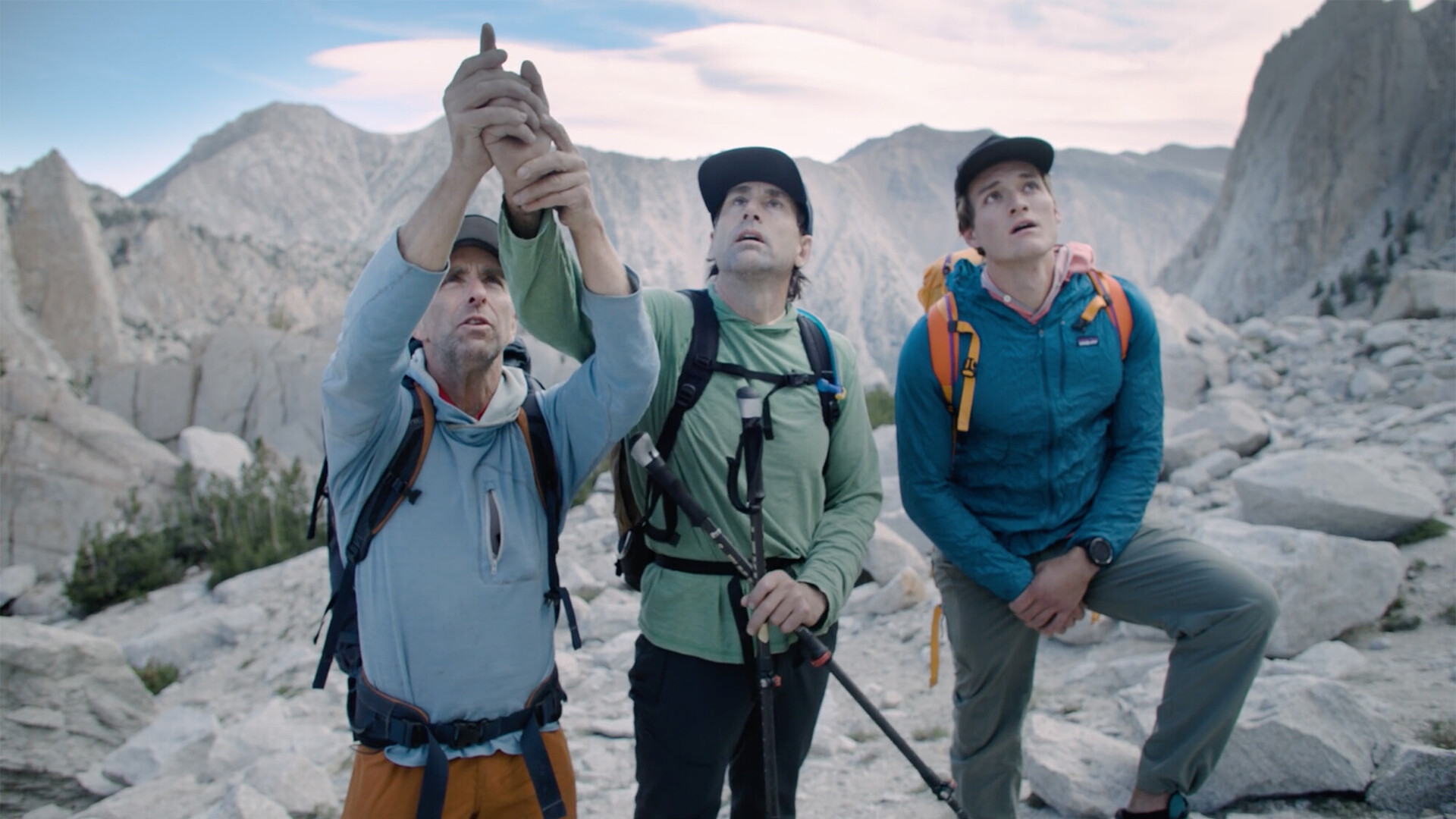
Soundscape
The film SOUNDSCAPE is part of the European Outdoor Film Tour 2024
In conversation with Erik and Timmy
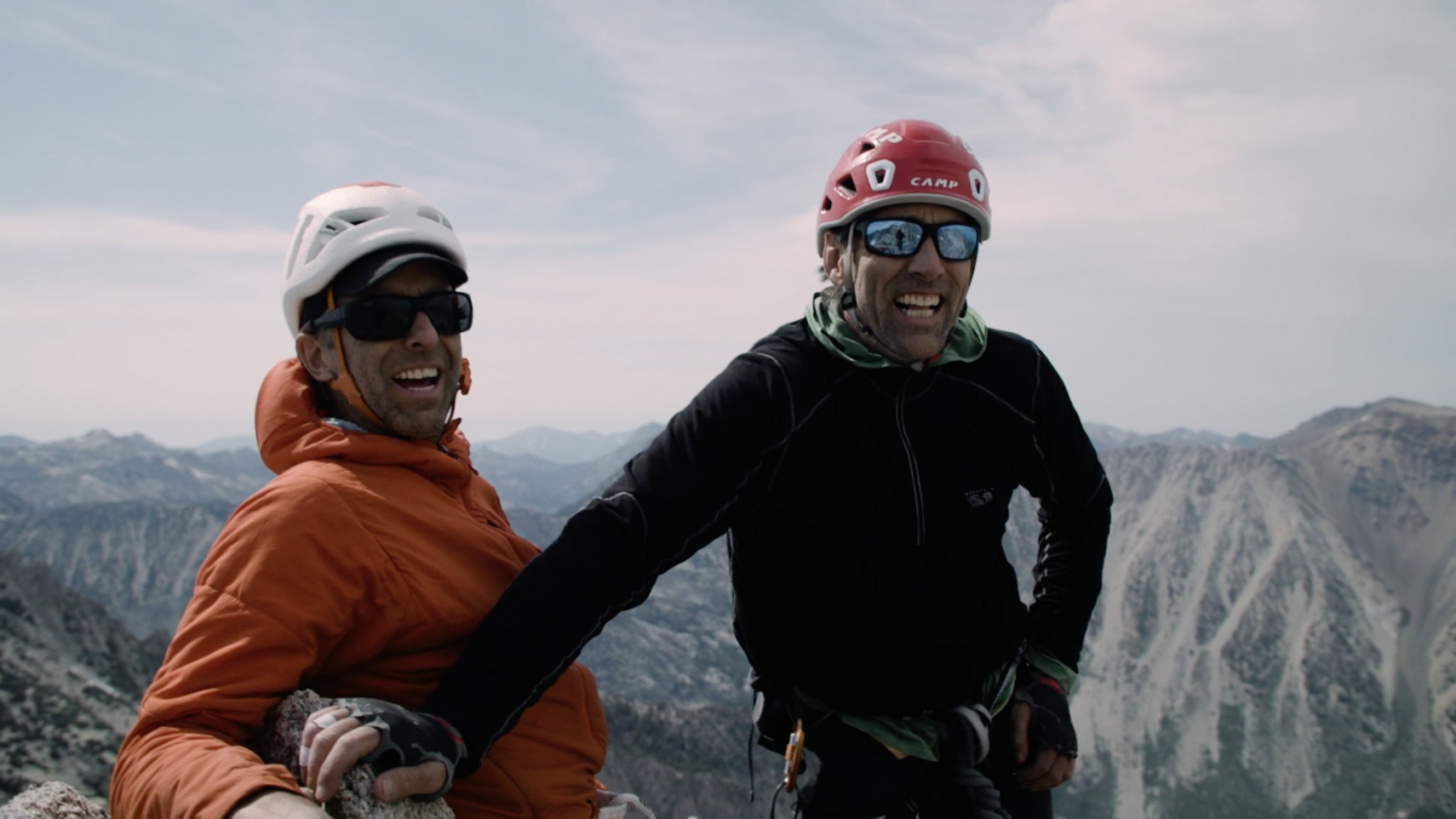
Timmy O’Neill
Timmy O'Neill is a professional climber and speaker. He made a name for himself as a speed climber on El Capitan in Yosemite Valley; today, he seeks outdoor adventures all over the world. In 2007, he founded “Paradox Sports”, leveraging his skills and his connections to introduce people with disabilities to the sport of climbing.
Erik Weihenmayer
Erik Weihenmayer has climbed Mount Everest and the Seven Summits, won several adventure races, climbed big walls in Yosemite Valley, and paddled a kayak through the Grand Canyon. He went blind at the age of 13 due to a congenital retinal disease. He is a sought-after speaker worldwide and campaigns for inclusion with the organization “No Barriers”.
Blind trust in big wall climbing
Timmy O’Neill and Erik Weihenmayer have known each other for over 20 years and share a passion for adventurous climbing routes. As a team, they focus on communication and mutual respect. While one is blind and the other sighted, what matters most is accountability for each other's safety.
When did you meet for the first time?
TIMMY O’NEILL The first time I remember meeting Erik was through his film about him climbing Mount Everest. There was a screening at the Banff Mountain Film Festival, and I also had a film in the festival called Urban Ape, about me climbing buildings and sculptures and interacting with people in an ironic way. My film won "Best Short Film" that year, and Erik’s won "Best Feature".
ERIK WEIHENMAYER I remember meeting Timmy even earlier than that, in the early 2000s at a film project. There used to be a series called Masters of Stone, featuring climbing stories, and I climbed a tower outside of Moab, Utah, with another disabled climber – Hugh Herr, who’s paraplegic. Timmy was one of the guys hauling food and gear to the film site. Later, we met again in Thailand, where he was climbing, and we started hanging out together.
So, in any case, you met through filmmaking…
TO: Yes, but we really connected in our best way through climbing and definitely through the film Soundscape.
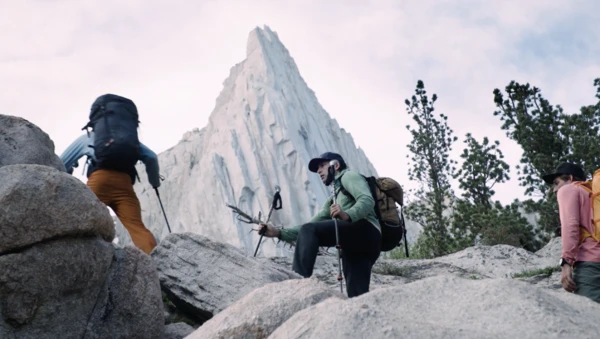
Was Erik your first entry into the world of adaptive climbing?
TO: No. I have a brother who’s paralyzed from the waist down. He had an accident where he broke his spine, and his accident became an opportunity for him to become a climber. And then it also became an entry point for me into adaptive climbing and adaptation overall. In 2013, I formed a nonprofit organization called Paradox Sports. We created it to be able to share the skills and the excitement, the positive energy and the capacity to go adaptive climbing for people who wanna do it and for people who want to help others do it. And it is still thriving today.
I'm never going to overcome blindness. I harness my blindness.
Erik Weihenmayer
What’s your take on the current state of inclusion and what’s your way of dealing with your disability?
EW: There are a lot of barriers in life and those barriers can shove us to the sidelines. And sometimes we live on the sidelines. I think the goal for some of us is to live fully and to breakthrough those barriers and but the way to breakthrough them isn't to overcome them because they'll always exist in the world.
I’ll always be blind. I'm never gonna overcome my blindness. The word I use is: I harness my blindness. I think it's great to spend things upside down and make your limitation your power, your purpose and your strength.
In the 90s when I was going around in the Outdoor community trying to get sponsors for climbs and things like that, being blind made me stand out like different from anyone else who was out there.
These days, the idea of inclusion and diversity can sometimes feel like box-checking. For example, in my podcast No Barriers, I’m going to interview an actress who’s a wheelchair user and is in a Broadway play. (Ali Stroker, editor’s note.)
Is she the only actress in a wheelchair on Broadway? One woman, who should make the whole theater world more diverse…
EW: Yes. It shows that we’re moving in the right direction, but I also wonder: Are people just checking boxes? A blind climber, an actress in a wheelchair – check. Or are they truly understanding that people of all backgrounds, circumstances, and abilities are thriving and trying to live life fully, just in different ways? We simply access the world differently.
He can't see anything, but he can feel everything, and that's what life is all about.
Timmy O'Neill
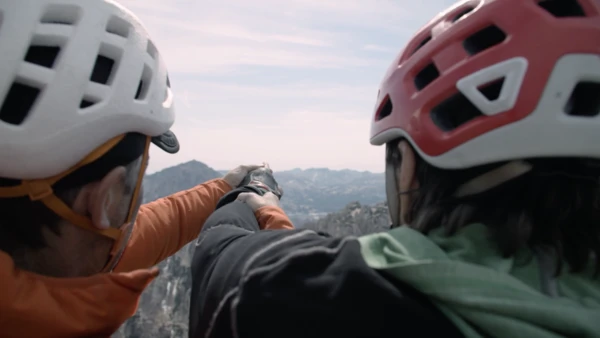
How do you handle your differences when climbing together, especially in terms of safety?
TO: Sometimes I have to step in and make a suggestion for safety, and occasionally I need to be more assertive with that suggestion because Erik knows his capacity and I don’t. That’s the interesting thing about disability. Typically, a guide has 90% of the information, and the client has 10%. But in this case, it’s reversed. The client has all the information, and the guide has the least. This provides an opportunity for me to be humble, to learn, and to accept that I’m in a different role. It also gives Erik the chance to teach and share his wisdom – how his body works and what adaptation means. It has to be open communication where both of you are learning and both of you are responsible for safety.
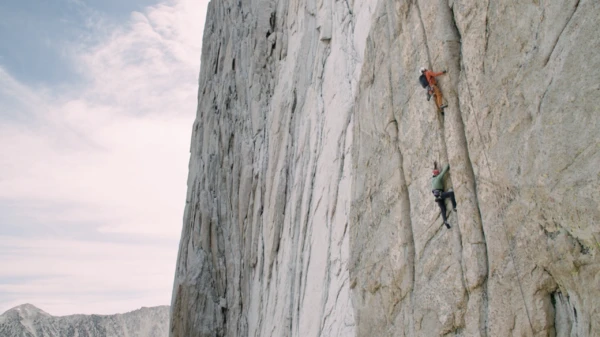
Would you climb The Incredible Hulk again?
EW: Probably my future isn’t to climb The Hulk a bunch more times. There are so many places to climb in the world, and it’s fun to do new things. Timmy and I have all sorts of other ideas about places we’re going to go and things we’re going to climb. That’s what gets me even more excited!
Thank you very much for the interview!
Got curious?
Here you get a little insight into their film SOUNDSCAPE!
Sneak peek: Soundscape
Want to see Erik and Timmy on the big screen?
Get your tickets for a show in your city!